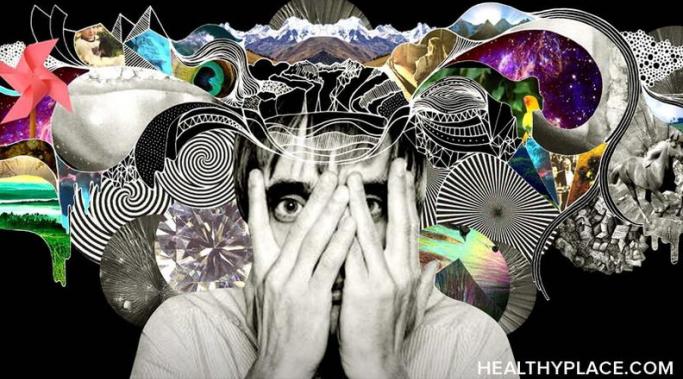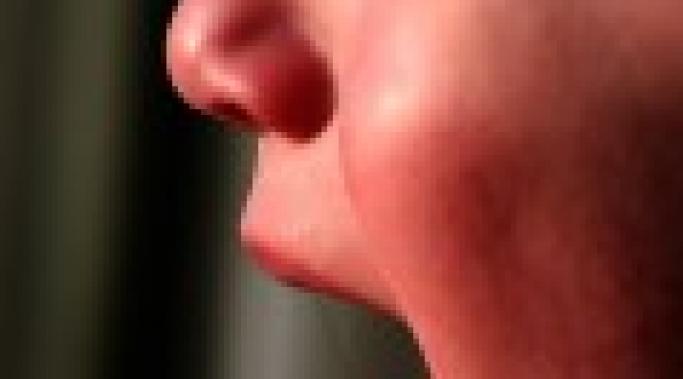This article is a continuation from Multi-Polar - The Many Moods of Bipolar Disorder part one.
Depression – Breaking Bipolar
Recently a reader asked me to describe the moods of bipolar disorder in my own words. OK, I thought, but a lot has been written (by me and others) about depression, mania and hypomania before. But then I thought about it and realized that there were actually many moods in bipolar disorder and just saying there are “up” and “down” moods sort of does a disservice to everyone struggling with bipolar disorder.
One of the challenging things about being a person with a mental illness who talks about psychiatry (and doesn’t hate it) is that all those people who do hate psychiatry perk up and get mad. These people often identify as “antipsychiatrists” and I’m not their biggest fan. While I consider it quite reasonable to question your doctor, psychiatrist, treatment, therapist and other treatment aspects, I consider going after an entire branch of medicine ridiculous. There is no “antioncology” faction in spite of the fact that a large percentage of people with cancer die (depending on the type, of course).
And this manifests in many of our lives. It’s not that antipsychiatrists just attack me; it’s that people of that mindset attack your average person who is just trying to deal with a mental illness. It’s the people who say, “mental illness doesn’t really exist” or “psychiatric medicine doesn’t work” or many other things that many of us hear online and in our real lives all the time.
So how do you talk to these people who have decided that your disease doesn’t exist and you shouldn’t be in treatment?
Earlier this week I wrote a piece about being scared of trying antidepressants and as one commenter pointed out, there are increased risks associated with treating a person with bipolar with antidepressants. In fact, some would say that treating a bipolar person with antidepressants can worsen the course of the illness (always contraindicated as monotherapy and possibly undesirable altogether). Now, when I wrote the article I was only thinking of unipolar depressives, but, as one commenter pointed out, being diagnosed, correctly, with bipolar disorder, in itself, can be a challenge.
And this is absolutely true. Studies have found that it takes 5-10 years (from the time of the first episode) for a person with bipolar disorder to get an accurate diagnosis. There are many reasons for this, predominantly that people don’t get help when they have their first episode, but a major contributing factor is also misdiagnosis. People with bipolar disorder are often diagnosed with depression or schizophrenia first and this can have devastating outcomes.
I remember, before trying medication, I was terrified of it. I had the same misconceptions that many people do:
Medication is for weak people
Antidepressants are just “happy drugs” designed for people who can’t handle life
Medication will ruin your brain
Doctors give out antidepressants like candy whether you need them or not
As it turns out, none of these things are true, but they sure seemed true at the time.
So I get fear of antidepressants and other medication. Psych medication is scary stuff.
But sometimes you have to face that fear in order to get better.
Mental illness symptoms are as cold and generic as inhumanly possible. “Depressed mood.” “Loss of energy or fatigue.” “Psychomotor retardation or agitation.”
Ah, yes, those things. They sound like a bummer.
Although, actually, they don’t. They sound like characteristics of a lab animal.
And one of the pesky symptoms of depression is “easy to tear.” You know, you cry a lot.
But everyone cries, so how bad could that possibly be?
Bipolar is a disease that takes over your brain – well, parts of your brain anyway – and these affected parts of your brain change your psychology right along with them. So once when you felt “normal” or let’s say, average, you now feel utterly destroyed. Your emotions are altered thanks to the attack on your brain.
And what’s worse about this is that bipolar or depression fundamentally changes who you think you are at that moment. If you used to be a fun-loving, happy-go-lucky sort, in a depression, nothing could be farther from the truth. When manic, all your thoughtful, careful ways become things of the past. You can barely identify with the person you were pre-mood.
And perhaps even worse than all that is that some part of you sees this dissonance. You know that who you are at that moment isn’t who you really are. It’s like someone else, a crazy person, moved right into your head and body and coopted your life. Bipolar snatched your body and brain.
Guilt – noun – a feeling of responsibility or remorse for some offense, crime, wrong, etc., whether real or imagined.
And people with a mental illness feel guilt over a lot of things. I hear from people every day who feel guilty about their illness, what they’ve done, what they haven’t done and how their mental illness and their behaviors due to it affect others (Feeling Guilty Because You Have a Mental Illness).
But mostly I consider guilt a waste of time in mental illness recovery.
I am single. I have been single for a long time, actually. It’s OK; I don’t mind it that way. I have my dalliances, I have my friends and I have my cats. It’s a touch stereotypical, but it’s my life.
I have, however, fallen victim to an irrational line of thought from time to time – I really want to couple. Some of this desire is completely rational. It’s normal to want to spend Sundays in bed with someone and have someone to share orange juice with in the mornings.
What isn’t rational, though, is the idea that a relationship will make me “happy,” will make me “better.” In times when bipolar feels it’s darkest, more than anything I just want someone to hold onto even if holding onto someone doesn’t work.
Holding onto someone, however special, will not cure bipolar disorder.
Mental health is something that matters whether you’re seven, seventeen and seventy, and any of those ages can fall victim to a mental illness. Depression, for example, is quite prevalent and undertreated in the elderly.
But if you’re underage, it may be more difficult than just going to your doctor to start the process of getting help for your mental health. It likely means explaining your mental health concerns to your parents; which, quite reasonably, is scary to a young person. (It’s scary to an old person too, but I digress.)
So how do you tell your parents you think you need mental health help?

![MP900285007[1]](/sites/default/files/styles/blog_listing/public/uploads/2012/06/MP9002850071.jpg?itok=jA3ISj4_)

![MP900255362[1]](/sites/default/files/styles/blog_listing/public/uploads/2012/06/MP9002553621.jpg?itok=ccR4teIZ)



![MP900442827[1]](/sites/default/files/styles/blog_listing/public/uploads/2012/04/MP9004428271.jpg?itok=jPcAEaSI)
![MP910221009[1]](/sites/default/files/styles/blog_listing/public/uploads/2012/04/MP9102210091-1024x682.jpg?itok=f95zPNhK)